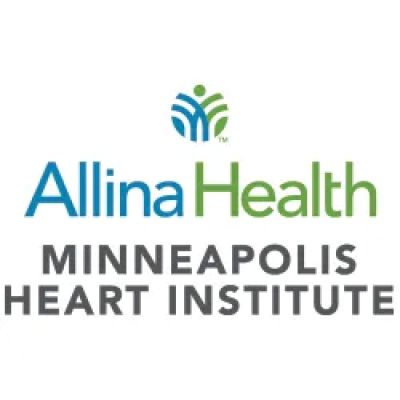- Heart Disease and Medication Adherence Tips
- Why Medication Adherence is Crucial for Heart Disease Patients
- Common Challenges to Medication Adherence in Heart Disease
- Tips for Improving Medication Adherence in Heart Disease
- How to Track Medication and Stay Consistent
Heart Disease and Medication Adherence Tips
Heart disease is one of the leading causes of death worldwide, and managing it requires a long-term commitment to lifestyle changes and medication adherence. However, medication adherence is a significant challenge for many patients, as it often involves taking multiple medications over a long period. In the case of heart disease, proper medication adherence can be the difference between managing the condition effectively and experiencing severe complications. In this article, we will explore why medication adherence is so important for heart disease patients, the challenges involved, and practical tips to improve adherence to prescribed treatments.

Why Medication Adherence is Crucial for Heart Disease Patients
Heart disease can take many forms, including coronary artery disease, heart failure, arrhythmias, and hypertension. Each of these conditions requires specific medications to manage symptoms, reduce the risk of complications, and improve the quality of life. Whether it’s blood thinners, cholesterol-lowering medications, or medications for high blood pressure, these drugs play a key role in controlling the disease and preventing severe outcomes like heart attacks, strokes, and other life-threatening conditions.
Medication adherence in heart disease patients is essential for several reasons:
- Preventing Complications: Missing doses or stopping medications prematurely can result in an increased risk of heart-related complications. For example, not taking blood pressure medications as prescribed may lead to an elevated risk of heart failure, while not adhering to cholesterol medications can cause plaque buildup in the arteries, leading to heart attacks.
- Maintaining Optimal Treatment: Medications are carefully prescribed by healthcare professionals to maintain the most effective treatment plan for an individual’s specific condition. Discontinuing medications without professional advice can disrupt the treatment process and diminish the benefits of the therapy.
- Improving Long-Term Prognosis: Consistent medication adherence has been shown to improve long-term survival rates and overall health in heart disease patients. Studies suggest that patients who stick to their medication regimens experience fewer hospitalizations, fewer complications, and a longer life expectancy.
In short, staying on track with prescribed heart disease medications is one of the most important steps a patient can take to manage their condition effectively and maintain a good quality of life.
Atlanta Heart Specialists
atlanta heart specialists
4375 Johns Creek Pkwy #350, Suwanee, GA 30024, USA

Common Challenges to Medication Adherence in Heart Disease
While the benefits of adhering to a medication regimen are clear, many patients with heart disease struggle with following their prescribed treatment plans. Some of the common challenges include:
- Forgetfulness: One of the biggest obstacles to medication adherence is simply forgetting to take the medications on time. Heart disease patients often have complex medication regimens that require taking several pills at different times of the day, making it easy to forget a dose.
- Side Effects: Many heart disease medications come with side effects, which can be discouraging for patients. Common side effects include dizziness, fatigue, nausea, and digestive issues. In some cases, these side effects may cause patients to skip doses or discontinue the medication altogether.
- Cost of Medication: The high cost of medications can also be a barrier for many patients. Heart disease medications, especially those for chronic conditions, may not be affordable for everyone, leading some to reduce their doses or stop taking them altogether.
- Lack of Understanding: Some patients may not fully understand the importance of taking their medications as prescribed. They may underestimate the severity of their condition or mistakenly believe that they no longer need medication if they feel better, which can result in non-adherence.
- Complexity of Medication Regimens: Patients with heart disease may be prescribed multiple medications, each with its own dosing schedule. Managing multiple medications can be overwhelming, leading to mistakes in taking the right dose at the right time.
While these challenges are common, there are strategies and solutions available to help patients overcome these barriers and stick to their prescribed treatment plans.
Tips for Improving Medication Adherence in Heart Disease
Improving medication adherence requires a combination of organization, motivation, and support. Here are some practical tips that can help heart disease patients stay on track with their medications:
- Create a Medication Schedule: Setting up a medication schedule and sticking to it can help patients remember to take their medications. Use a daily or weekly pill organizer to sort medications by the time of day. Many patients find it helpful to link taking their medications to another daily routine, such as brushing their teeth or having a meal.
- Set Reminders: Technology can be a powerful tool for medication adherence. Set phone alarms or use medication reminder apps to receive notifications when it's time to take a dose. Some apps even allow you to track your medication history and send reminders for refills.
- Work with Your Healthcare Provider: If side effects or cost is an issue, talk to your doctor. There may be alternative medications or formulations that are easier to tolerate or more affordable. Sometimes, adjusting the dose or trying a different drug can help manage side effects more effectively.
- Understand Your Medications: It’s important to have a good understanding of your medications, why they’re prescribed, and how they help your condition. This can provide motivation to adhere to the treatment plan. Ask your healthcare provider or pharmacist to explain the benefits and any potential risks of your medications.
- Enlist Support: Having a support system in place can help patients stay on track with their medications. This could include family members, friends, or even a medication coach who can provide encouragement and reminders.
- Keep Track of Progress: Track your health progress and share it with your healthcare provider. When patients see the positive effects of their medication, they are more likely to remain committed to their treatment regimen.
By following these tips, heart disease patients can improve their medication adherence, avoid complications, and enhance their overall health and well-being.
How to Track Medication and Stay Consistent
Keeping track of your medication regimen is essential to maintaining consistent adherence. Here are a few ways to monitor your progress:
- Use Medication Journals: Keep a simple journal to track when you take your medications, along with any side effects or changes in symptoms. This journal can help identify patterns and alert you to potential issues that need to be addressed with your healthcare provider.
- Utilize Medication Management Services: Some pharmacies and healthcare providers offer medication management services, where they can help organize and track your medications, ensuring you take the right doses at the right times.
- Keep Communication Open with Your Doctor: Regular check-ins with your healthcare provider can help you stay on track. Share any concerns, side effects, or difficulties you face with medication adherence so that adjustments can be made as needed.
Staying consistent with medication adherence can significantly improve the management of heart disease and reduce the risk of complications. By actively monitoring your medications and working closely with your healthcare team, you can better manage your heart disease and lead a healthier life.
If you're looking for additional support, consider visiting HeartCare Hub, where you can find helpful resources and expert recommendations to help you manage your heart health.





















Deborah Heart and Lung Center
deborah heart and lung center
200 Trenton Rd, Browns Mills, NJ 08015, USA